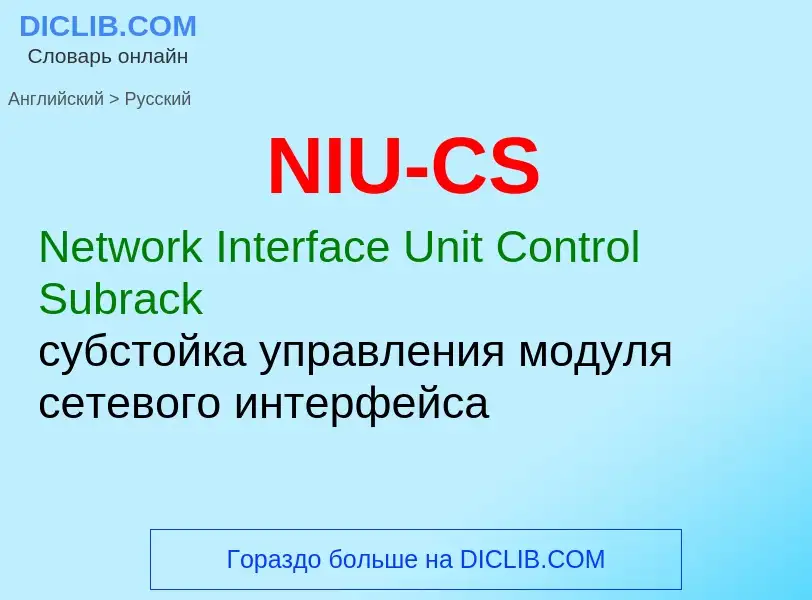Traducción y análisis de palabras por inteligencia artificial ChatGPT
En esta página puede obtener un análisis detallado de una palabra o frase, producido utilizando la mejor tecnología de inteligencia artificial hasta la fecha:
- cómo se usa la palabra
- frecuencia de uso
- se utiliza con más frecuencia en el habla oral o escrita
- opciones de traducción
- ejemplos de uso (varias frases con traducción)
- etimología
NIU-CS - traducción al ruso
общая лексика
(Chip Select) выбор микросхемы, сигнал CS
(Code Segment) кодовый сегмент
(Convergence Sublayer) подуровень схождения
в сетях ATM - один из двух подуровней AAL, обеспечивающий транспортировку данных
сокращение
[casing seat] уступ в скважине для опоры башмака обсадной колонны
упорное кольцо хвостовика
[centistokes] сантистокс (единица кинематической вязкости)
существительное
общая лексика
начальник штаба
государственная гражданская служба
синоним
Definición
Wikipedia
.jpg?width=120)
Niujie (Chinese: 牛街; pinyin: Niú jiē; Wade–Giles: Niu-chieh; lit. 'Oxen Street') is a subdistrict in Xicheng District in southwest Beijing, China. The name "Niujie" can refer to the street Niujie or to the neighborhood Niujie. The subdistrict was previously in Xuanwu District before the district was merged into Xicheng District in 2010. As of 2020, its total population is 51,410.
The Niujie Subdistrict is administered by the Niujie Subdistrict Administrative Office. The core area of this district is along the street Niujie. The Niujie core area, a Hui people neighborhood, has Beijing's largest concentration of Muslim people. As of 2013 there is a Muslim-oriented hospital as well as social services, cafés, shops, restaurants, and schools catering to the Muslim population. In 2002 Wenfei Wang, Shangyi Zhou, and C. Cindy Fan, authors of "Growth and Decline of Muslim Hui Enclaves in Beijing," wrote that Niujie "continues to thrive as a major residential area of the Hui people in Beijing and as a prominent supplier of Hui foods and services for the entire city." The neighborhood has the Niujie Mosque, which according to Wenfei Wang, Shangyi Zhou, and Cindy Fan, "mark[s] the identity of Niujie" and has an element of centrality in the community. Most larger Hui neighborhoods in Beijing have their own mosques.

.jpg?width=200)
